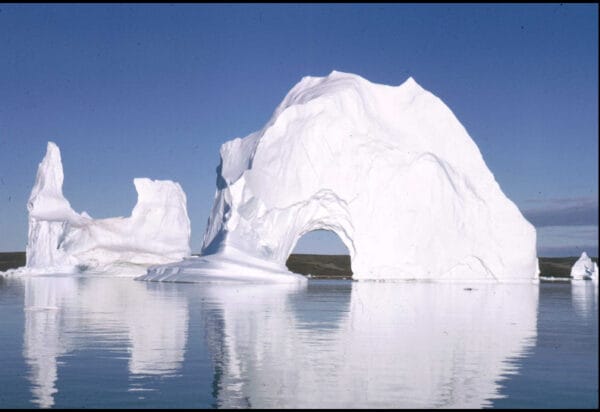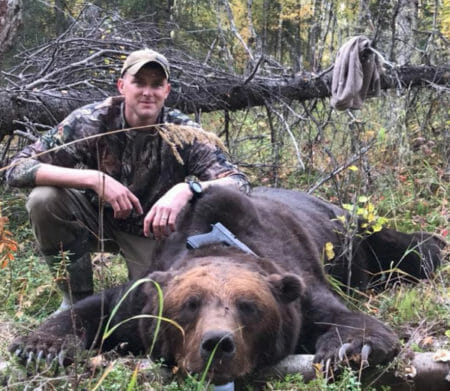Opinion: Book Review: The Sledge Patrol, David Howarth, 233 pages, Macmillan, 1957.

The Sledge Patrol, by David Howarth, 233 pages, published by Macmillan in 1957. $10 in mass market paperback from Amazon. First editions available as used copies.
The Sledge Patrol is a one of those fascinating glimpses of WWII which show the conflict through an unexpected and unusual lens. It is the story of the East Coast of Greenland and how a few men can affect a much larger conflict, in ways of which they are unaware. As a bonus, there is the description of a conflict between a polar bear and a man alone on the ice. The polar bear conflict is not listed in the Polar Bear Human-Information Management System (PBHIMS) database.
It should be included.
When WWII began, Denmark was unexpectedly invaded by the Germans on April 9th, 1940. Greenland was a colony of Denmark.
The King of Denmark ordered all Danes to submit. Greenland refused to do so because the administrator believed the King was acting under duress. The administrator, Eske Brun, decided to defy the order to submit. He believed, sooner or later, the Americans would enter the war. The Western coast of Greenland was easily under the protection of the United States. The East coast was another matter. It could only be patrolled unsatisfactorily by airplane at great expense; or it could be patrolled by a small number of men with dog teams. Thus was formed the Greenland Sledge Patrol, with 15 men who knew the hundreds of miles of coastline, and who could hunt, live off the land, and exist for months in their scattered and isolated hunting huts. The firearms in Greenland consisted of hunting rifles.

Greenland came to matter because of the few weather stations available. Greenland covers hundreds of miles of the Northeast coast of the Atlantic Ocean. The battle of the Atlantic was soon raging. One of the advantages the Allies had was reliable weather observations from Greenland. The lack of these left a large hole in Axis weather maps and degraded their weather forecasting.
In 1942, the Germans established a weather station outpost on the East coast of Greenland. An American plane flew right over them on their way in, but did not spot the ship in the pack ice. Six months later, the Sledge Patrol found them.
As part of the drama to accompany this conflict, one of the patrol members escaped capture and made his way over 50 miles of ice and snow, on foot, with a rifle and scavenged clothes, to warn his comrades. A few miles from his point of escape, he and a polar bear encountered each other at close range in a broken ice field. From p. 84:
One of the curious things about polar bears is that in nature they never see any animal which does not run away from them as well as it can; and so if a man stands his ground in front of a bear, or goes toward it, it often takes fright and goes away. But, on the other hand, if the man runs away, the bear regards him as another animal, much easier than most of its prey, and will lope after him and almost casually fell him with its paw.
For once, Marius did not want to shoot the bear. He did not know how close the Germans were. They might easily have come along the sea-ice more quickly than he had come over the hill, and he thought they might hear a shot. So he advanced toward the bear, hoping to scare it; but it would not move. For some minutes, he and the bear stared each other out, each waiting for the other to give the first sign of fear. It was Marius whose nerve broke first: he reluctantly raised his rifle and fired. The bear fell dead. The sound of the shot echoed around the hills and he listened, half expecting an answering shot; but the silence fell back again.
The story is well-researched and riveting. The author, David Howarth, interviewed most of the principals, including the German commander. Extensive official records were made available.
The Axis powers were denied meteorological reports from Greenland at the most crucial time. Perhaps it made a significant difference in the D-Day invasion. It is impossible to know for certain. Most of the principals survived the war and continued their lives.
Bears Don’t Care About Your Philosophy: Why Firearms Matter in Bear Country
About Dean Weingarten:
Dean Weingarten has been a peace officer, a military officer, was on the University of Wisconsin Pistol Team for four years, and was first certified to teach firearms safety in 1973. He taught the Arizona concealed carry course for fifteen years until the goal of Constitutional Carry was attained. He has degrees in meteorology and mining engineering, and retired from the Department of Defense after a 30 year career in Army Research, Development, Testing, and Evaluation.







The most difficult war is a cold weather war. The coldest military operations ever were Stalingrad, Napolean’s forces fleeing Russia, the US invasion of North Korea and Washington’s Army trapped at Valley Forge. And most of these clashes became historic disasters.
the things that change the world can be as small as a gascap left off a generator
Another reason to make Greenland part of the USA.
Many are against that.
Would they prefer that the USA didn’t buy Alaska from Russia?
Many articles have mentioned that both China and Russia are trying to get control of Greenland ( and northern Canada – maybe this new elected far leftist liberal prime Minister will give northern Canada to both Russia and China) since he hates Trump so much.
Go to a gun show this weekend and stock up on ammo, high capacity magazines, accessories and guns!